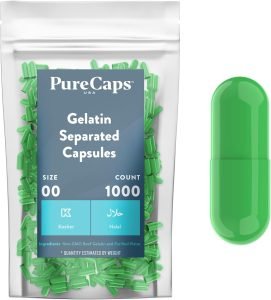What Vitamins Are There In Green Pills?
Imagine you’re staring at a small green pill, wondering about its nutritional value. Well, you’re not alone. Many people have questioned the mysterious identity of this vibrant pharmaceutical wonder. In this article, we’ll unravel the mystery as we explore the vitamin that lurks behind the emerald hue of that little green pill. Brace yourself for some fascinating insights into the world of nutrition and health. So, are you ready to uncover the secret? Let’s get started!
Introduction
Explanation of the topic
In recent years, the popularity of green pills as a supplement for various vitamins has been on the rise. These little green pills hold the promise of providing essential nutrients to support our overall health. But what exactly are these green pills? What do they contain? In this article, we will explore the world of vitamin supplements, with a specific focus on green pills. We will dive into the benefits, sources, and recommended dosages of vitamins A, B, C, D, E, and K, all of which are commonly found in green pill form. By the end of this article, you will have a comprehensive understanding of these important vitamins and their role in keeping you healthy and thriving.
Vitamin Supplements
Overview of vitamin supplements
Vitamin supplements have gained popularity as a convenient and efficient way to bridge the nutritional gap in our modern lifestyles. These supplements come in a variety of forms, from capsules to tablets, powders, liquids, and even gummies. They are designed to provide the essential vitamins and minerals that our bodies need but may not be receiving in sufficient quantities through our diet alone. Vitamin supplements act as a complement to a well-balanced diet and can help support overall health and well-being.
Importance of vitamins for overall health
Vitamins are organic compounds that our bodies need in small amounts to function properly. They play a crucial role in the maintenance of good health, supporting various bodily functions, including energy production, immune system function, bone health, and cell growth. While a healthy diet should ideally provide us with all the vitamins we need, factors such as poor dietary choices, restrictive eating patterns, or certain health conditions can make it challenging to obtain adequate amounts of some vitamins. This is where vitamin supplements can be beneficial, ensuring that you maintain optimal levels of these essential nutrients.

Types of Green Pills
Introduction to different types of green pills
When it comes to green pills, there are a few different types that you may encounter. Let’s take a closer look at each type and what it contains:
- Green Superfood Pills: These green pills often contain a combination of various nutrient-dense ingredients such as chlorella, spirulina, wheatgrass, and barley grass. They are packed with essential vitamins, minerals, and antioxidants, offering a convenient way to increase your daily nutrient intake.
- Plant-Based Multivitamins: These green pills are formulated specifically for individuals following a plant-based or vegetarian diet. They typically contain a wide array of essential vitamins and minerals that may be lacking in plant-based diets, such as vitamin B12 and iron.
- Single-Vitamin Green Pills: These green pills focus on delivering a concentrated dose of a specific vitamin. They come in various forms, with each pill containing high levels of a particular vitamin, such as vitamin A, B, C, D, E, or K. These pills are ideal for individuals who have identified a specific vitamin deficiency or want to target a particular area of health.
Now that we have a general understanding of the types of green pills available, let’s delve into the benefits, sources, and recommended dosages of the key vitamins found in these green pills.
Vitamin A
Benefits of vitamin A
Vitamin A is a fat-soluble vitamin that plays a vital role in maintaining proper vision, boosting the immune system, and promoting healthy skin. It also supports cell division and growth, making it essential for development in children and maintaining healthy tissues in adults. Additionally, vitamin A acts as a powerful antioxidant, helping to protect cells from damage caused by harmful free radicals.
Sources of vitamin A
Vitamin A can be found in two main forms: preformed vitamin A (retinoids) and provitamin A carotenoids. Preformed vitamin A is found in animal sources such as liver, fish, and dairy products. Provitamin A carotenoids are found in plant-based sources like carrots, sweet potatoes, spinach, and kale. Green pills containing vitamin A often contain a combination of both forms to ensure optimal absorption and utilization by the body.
Recommended dosage
The recommended daily intake of vitamin A varies depending on age and gender. For adults, the recommended daily allowance (RDA) is 700-900 micrograms of retinol activity equivalents (RAEs) for men and 600-700 RAEs for women, respectively. It is important to consult with a healthcare professional before starting any supplementation regimen to determine the appropriate dosage for your specific needs
Vitamin B
Benefits of vitamin B
The B-vitamin complex consists of eight different vitamins, including B1 (thiamine), B2 (riboflavin), B3 (niacin), B5 (pantothenic acid), B6 (pyridoxine), B7 (biotin), B9 (folate), and B12 (cobalamin). Collectively, these vitamins help convert the food we eat into energy, support brain function, promote healthy red blood cell production, and maintain a healthy nervous system. Each B vitamin has unique functions, but they often work together to support overall health and well-being.

Sources of vitamin B
Vitamin B can be found in a wide range of food sources, including whole grains, legumes, nuts, seeds, meat, fish, dairy products, and dark leafy greens. While it is possible to obtain B vitamins through diet alone, supplementation can be beneficial, especially for individuals with specific dietary restrictions or limited food choices.
Recommended dosage
The recommended dosage for each B vitamin varies, but the general guidelines suggest the following daily allowances for adults:
- B1 (thiamine): 1.2-1.4 milligrams
- B2 (riboflavin): 1.3-1.6 milligrams
- B3 (niacin): 14-16 milligrams
- B5 (pantothenic acid): 5 milligrams
- B6 (pyridoxine): 1.3-1.7 milligrams
- B7 (biotin): 30 micrograms
- B9 (folate): 400 micrograms
- B12 (cobalamin): 2.4 micrograms
It is essential to consult with a healthcare professional to determine your specific needs and ensure you are taking the appropriate dosage of each B vitamin.
Vitamin C
Benefits of vitamin C
Vitamin C, also known as ascorbic acid, is a powerful antioxidant that supports the immune system, promotes collagen synthesis, and aids in the absorption of iron. It plays a vital role in wound healing, maintaining healthy gums, and combating oxidative stress caused by environmental factors such as pollution and UV radiation.
Sources of vitamin C
While commonly associated with citrus fruits like oranges and lemons, vitamin C can be found in a variety of fruits and vegetables. Excellent sources of vitamin C include bell peppers, strawberries, kiwi, guava, broccoli, and kale. Green pills containing vitamin C are typically derived from natural sources such as acerola cherry or camu camu, providing a concentrated dose of this essential nutrient.
Recommended dosage
The recommended daily intake of vitamin C for adults is 75-90 milligrams for women and 90-105 milligrams for men. However, certain conditions, such as pregnancy or being a smoker, may require higher doses. It is important to consult with a healthcare professional to determine your specific needs and ensure you are taking the appropriate dosage of vitamin C.
Vitamin D
Benefits of vitamin D
Vitamin D, also known as the sunshine vitamin, plays a crucial role in maintaining healthy bones, teeth, and muscles. It aids in the absorption of calcium and phosphorus from the intestines, which are essential for bone mineralization. Additionally, vitamin D has been linked to immune health, reducing the risk of certain diseases, and supporting mental well-being.
Sources of vitamin D
Our bodies can produce vitamin D when our skin is exposed to sunlight. However, many people do not get enough sun exposure due to various factors such as living in northern latitudes, spending most of their time indoors, or wearing sun protection. Dietary sources of vitamin D include fatty fish (such as salmon and mackerel), fortified dairy products, and eggs. Green pills containing vitamin D are often derived from plant or animal sources and can provide an alternative source of this vital nutrient.
Recommended dosage
The recommended daily intake of vitamin D varies depending on age and other individual factors. Generally, adults should aim for 600-800 International Units (IU) per day. However, it is important to have your vitamin D levels checked by a healthcare professional as some individuals may require higher doses, especially if they have deficiencies or specific health conditions.
Vitamin E
Benefits of vitamin E
Vitamin E is a fat-soluble antioxidant that helps protect cells from damage caused by free radicals. It plays a crucial role in maintaining healthy skin, eye health, and a strong immune system. Vitamin E also acts as a natural anti-inflammatory, potentially reducing the risk of chronic diseases such as heart disease and certain types of cancer.
Sources of vitamin E
Good dietary sources of vitamin E include nuts, seeds, vegetable oils (such as sunflower, safflower, and wheat germ oil), and green leafy vegetables. Green pills containing vitamin E often supplement the diet with a concentrated dose of this essential nutrient, ensuring optimal intake for those who may not consume enough from food sources alone.
Recommended dosage
The recommended daily intake of vitamin E for adults is 15 milligrams of alpha-tocopherol equivalents (ATE). It is important to note that excessive intake of vitamin E through supplementation may have adverse effects. Therefore, it is crucial to consult with a healthcare professional to determine the appropriate dosage for your specific needs.

Vitamin K
Benefits of vitamin K
Vitamin K is essential for blood clotting, preventing excessive bleeding and promoting proper wound healing. It also plays a role in bone health by aiding in the regulation of calcium deposition in the bones and preventing calcium buildup in the arteries.
Sources of vitamin K
Vitamin K can be found in two main forms: vitamin K1 (phylloquinone), which is derived from plant sources such as leafy greens, broccoli, and Brussels sprouts, and vitamin K2 (menaquinone), which is produced by bacteria in the intestines and also found in animal sources like meat, cheese, and eggs. Green pills containing vitamin K often combine both forms to ensure comprehensive support for blood and bone health.
Recommended dosage
The recommended daily intake of vitamin K for adults is 90-120 micrograms for women and 120-150 micrograms for men. However, certain individuals, such as those on anticoagulant medications, may require more specific dosages. It is important to consult with a healthcare professional to determine your specific needs and ensure you are taking the appropriate dosage of vitamin K.
Conclusion
Summary of the article
In conclusion, green pills offer a convenient and efficient way to supplement our diets with essential vitamins. By understanding the benefits, sources, and recommended dosages of the key vitamins found in green pills, we can make informed choices to support our overall health and well-being. From vitamin A to vitamin K, each vitamin plays a unique role in maintaining various aspects of our health, from our immune system to our bones and skin. Remember, it is always best to consult with a healthcare professional before starting any supplementation regimen to determine the appropriate dosage for your specific needs. So, go ahead and embrace the power of green pills to enhance your overall health and vitality.




